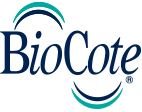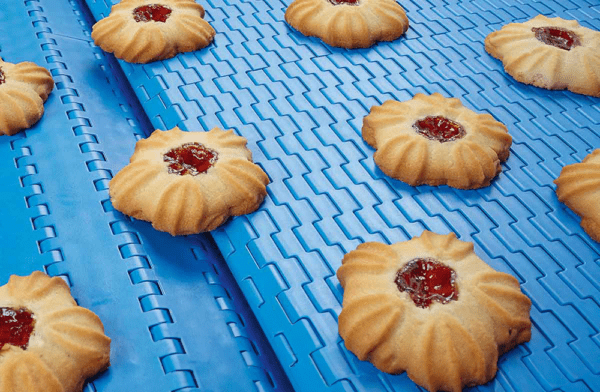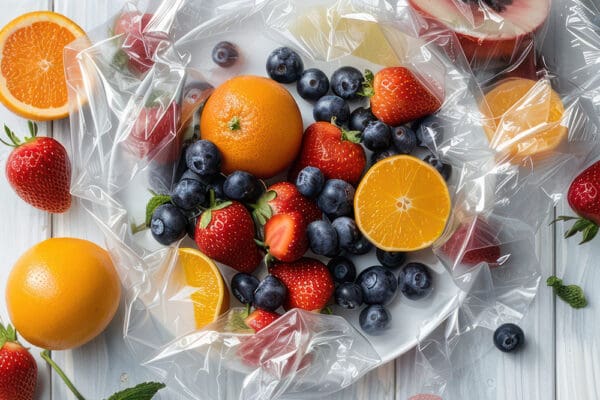
BioCote®: The Benefits of Antimicrobial Plastics are Driving Market Growth
With the antimicrobial plastics market expected to continue to grow, David Hall, Managing Director of BioCote®, explains more about the benefits of antimicrobial technology and the reasons behind the growth forecast.
Antimicrobial plastic products are created by integrating antimicrobial additives into the plastic material via masterbatch or powder concentrate during manufacturing. A product made from antimicrobial plastic will be permanently protected against the growth of a wide range of microbes, including bacteria, mould and some viruses.
Two recent reports on the antimicrobial plastics market forecast market growth. According to MarketsandMarkets’ report, published in October 2020, the market is estimated to grow from USD 36.9 billion in 2020 to USD 59.8 billion by 2025, at a compound annual growth rate (CAGR) of 10.1%. Meanwhile, a report from Grand View Research from June 2020 says the market is expected to grow at a CAGR of 8.2% from 2020 to 2027.
This anticipated growth is attributed to increasing demand for antimicrobial plastics in the medical and healthcare sectors, as well as in the packaging, food & beverage, transportation, consumer goods and building & construction industries. Medical and healthcare applications lead the market, with typical antimicrobial products, including hospital beds and cubicle curtains and medical devices such as ventilators and catheters. According to MarketsandMarkets, almost 45% of current production is being utilised in medical equipment, and the Grand View Research report suggests the healthcare end-use segment accounted for more than 31% share of global revenue in 2019.
Indeed, in recent times – and over the past year in particular – the world has become increasingly focused on hygiene and cleanliness, with people spending more time sanitising their hands, the surfaces they touch and the products they use. BioCote® has seen its antimicrobial additives being integrated into a much wider range of plastic products to prevent the growth of microbes on surfaces, bolstering stringent cleaning regimes and good hand-hygiene practices.
Antimicrobial technology
Antimicrobial additives work by making surfaces inhospitable to microbes (for example, by causing protein, cell membrane and oxidative damage, and through DNA interference). The surface, therefore, becomes easier to keep hygienically clean and the risk of cross-contamination is reduced. Additives can be easily and cost-effectively built into products made from all types of plastics and polymers – from polypropylene and thermoplastic polyurethane to silicone and acetal – during the moulding or extrusion stage.
Formulating an additive involves harnessing the properties of antimicrobial materials (‘active ingredients’). Silver ion (an extremely effective and proven antimicrobial that has been used for many years) is typically used in plastic products, but other materials include copper, zinc, and organic compounds, as well as products that combine the benefits of the different metal ions such as silver/copper and silver/zinc blends. Additives are supplied as a concentrated powder, liquid suspension or masterbatch pellets. The chosen solution depends on the type of product being treated and its end-use, and the customer’s manufacturing process.
BioCote® technology acts in minutes and can reduce the number of microbes on a protected plastic surface by up to 86% in just 15 minutes and by up to 99.99% in a 24-hour period. Providing permanent protection, it is effective against a broad spectrum of bacteria, including E. coli, MRSA, Salmonella, Campylobacter and Listeria, as well as mould, fungi and some viruses, including influenza A H1N1. It has also been proven to reduce a strain of feline coronavirus (Munich) by 90% in two hours. The protection is continuous and will last for the expected life of the product; it cannot wear out or wash off.
Before BioCote® sends its additives to customers to integrate into their products, BioCote® carries out stringent quality-control tests and checks on matters such as particle size, moisture content, visual appearance, and active substance concentration, as required for that chemical. Then once the additive has been integrated, a team of experienced microbiologists from an independent laboratory measures and validates the product’s antimicrobial performance using the appropriate certified test method. This ensures products deliver the required levels of efficacy associated with the standards of the BioCote® trademark.
Introducing an additive will not affect the colour or clarity of the plastic. In fact, preventing the growth of microbes works to mitigate the risk of staining, unpleasant odours and premature material degradation caused by microbes. In some cases, the addition of antimicrobial technology will extend a product’s usable lifetime compared to an unprotected one, increasing the sustainability of that product.
Hygiene-critical environments
While the spread of microbes has become an increasing concern for many sectors, antimicrobial plastic products are in particular demand for environments where hygiene is paramount and there are high and constant levels of human traffic, such as in hospitals, schools, care homes and food production facilities.
One BioCote® partner that supplies products to hygiene-critical environments is COCO Lighting, a UK designer and LED lighting manufacturer. The company’s Bio-Luminaire™ range of ceiling, wall-mounted and pendant LED luminaires offers efficiency, reliability, and a wide range of bespoke trim colours – but also provides a hygienic solution. Light fixtures can harbour hidden bacteria – something that can often be overlooked because they are fitted on relatively high, potentially inaccessible points on walls and ceilings.
With BioCote® silver-ion technology built into the structure of the paint and polycarbonate during the manufacturing process, Bio-Luminaire reduces levels of bacteria by up to 99.9% on the Luminaire’s surface over a 24-hour time period, as validated by an independent laboratory. The entire surface, including the casing and diffuser, is protected, making the product inherently more hygienic for its lifetime. Joining BioCote® as a partner in early 2019, COCO Lighting has been really involved as a partner, engaging with the BioCote® team in marketing activities such as a workshop experience day at the BioCote® offices and getting involved across social media platforms. This has made for a great relationship and allowed product development to advance very quickly.
Adrian Gayler, Marketing Manager, COCO Lighting, said: “When developing our Bio-Luminaire™ range, we only wanted to use the best antimicrobial technology available. BioCote® won hands down with their well-established, proven, and reliable technology based on our in-depth research and testing. Backed by a friendly and knowledgeable team that both our customers and we can trust. We feel confident we have achieved a safe, effective, long-term, reliable solution with proven results.”
Today, people are much more aware that surfaces and products they buy can harbour microbes – and, in response, manufacturers of plastic products are increasingly offering antimicrobial solutions, leading to market growth that looks set to continue for many years.
BioCote®
+44 (0) 2477 712489
Website
Email






